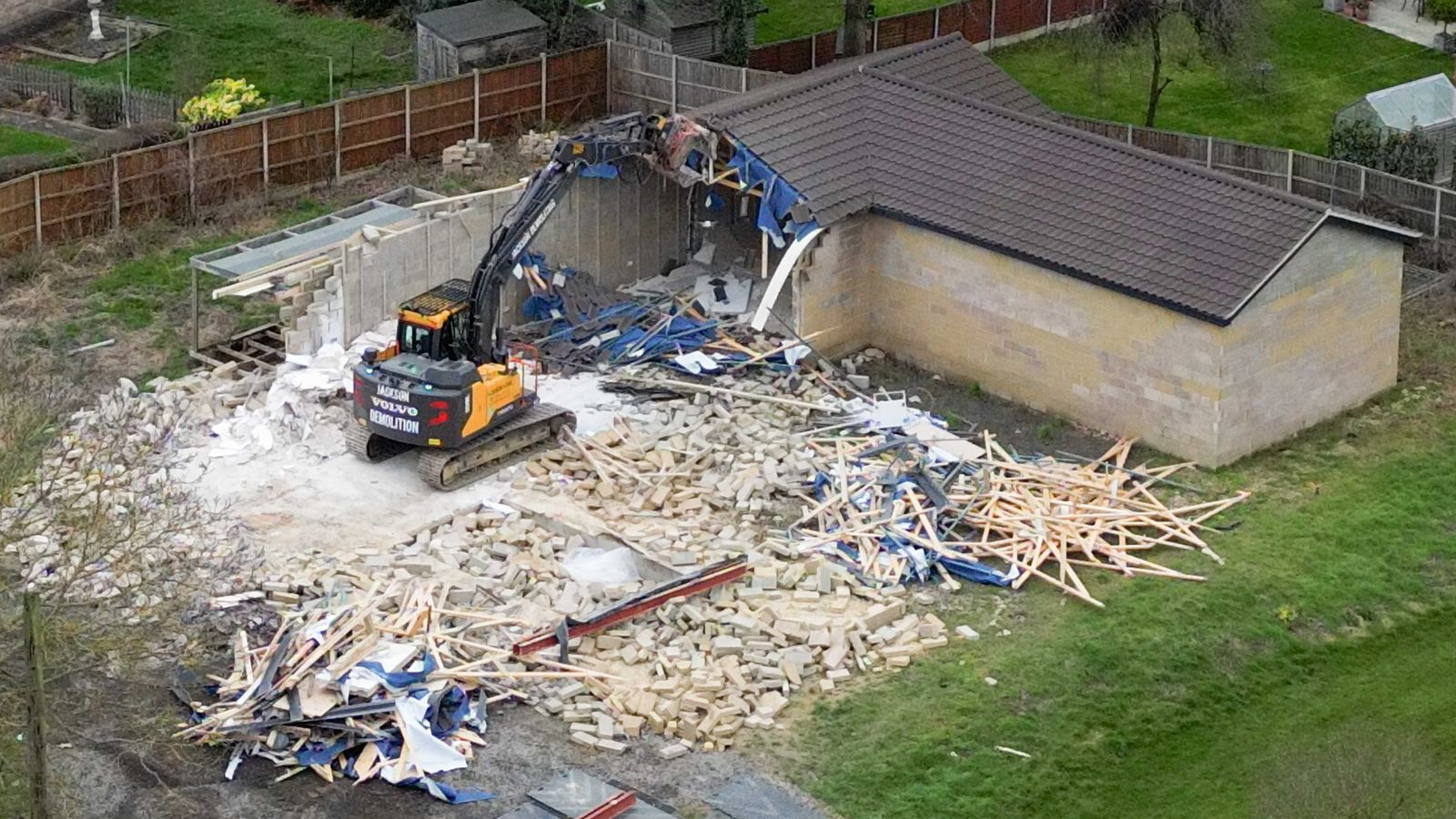This has not been a good week for Rishi Sunak. Accused of weakness for not backing the report into Boris Johnson, he now appears to be failing on the economic priorities which Tories had hoped would be in reach.
Mr Sunak promised to halve inflation this year, from a high of more than 10% in January, as his first priority – a hostage to fortune as it is now stalling.
Also in today’s ONS figures is another grim statistic – that public sector debt, likely fuelled by support with energy bills, is at more than 100% of GDP for the first time in 60 years.
Politics latest:
Sunak opens Ukraine conference ahead of first PMQs since partygate vote
Interest payments on government debt could wipe out any headroom the chancellor would have used for pre-election tax cuts.
Getting debt down was the third of Mr Sunak’s five priorities at the start of the year. At that point, controlling inflation and debt – compared with stopping small boats and cutting NHS waiting lists – looked like the easier ones to meet.
Not so, now.
Labour to force Conservative MPs to support return of animal rights bill
Shaun Bailey apologises ‘unreservedly’ for staff-partying video – and says it is ‘for others to decide’ about his peerage
Boris Johnson denied special access to parliament as MPs endorse report which said he lied
Forecasters predicted inflation would tumble this year, and the prime minister decided to own it, despite many of the factors being out of his control.
The Conservatives now face heading into an election year with 30,000 people a week coming off fixed-rate deals and paying far more.
Chancellor Jeremy Hunt is today holding the line, calling for patience, and the prime minister is expected to do so too when Labour challenge him about it at Prime Minister’s Questions, arguing the opposition would rack up more borrowing and debt.
With another hike in interest rates expected tomorrow, the chancellor is backing the Bank of England as they try to – in his words yesterday – “strangle inflation”. He is batting away louder calls for direct mortgage relief or tax cuts.
But it threatens to be a slow burn crisis for millions of homeowners, and also renters who are seeing prices soar as landlords try to recoup their costs.
Last month, Mr Hunt told Sky News’ Ed Conway that he would support a rise in interest rates north of 5% – “even if that would precipitate a recession” – to bring down inflation.
One of his economic advisers, Karen Ward of JP Morgan Asset Management, made the argument this morning that the Bank should go further and only recession-like conditions – with companies deciding against prices rises and workers deciding against asking for pay rises – would curb inflation.
In the Treasury, sources say fiscal support for people with mortgages could be disastrous and the chancellor must stick the course – but it could take far longer than hoped.
This is hardly the backdrop for what is expected to be the traditional debate in the Conservative Party at election time about lowering the tax burden – currently at a 70-year high.
With the Liz Truss period in mind, those publicly calling for tax cuts have been sidelined. But as the election looms, the battle between those backing giveaways and staying the course will ramp up.







